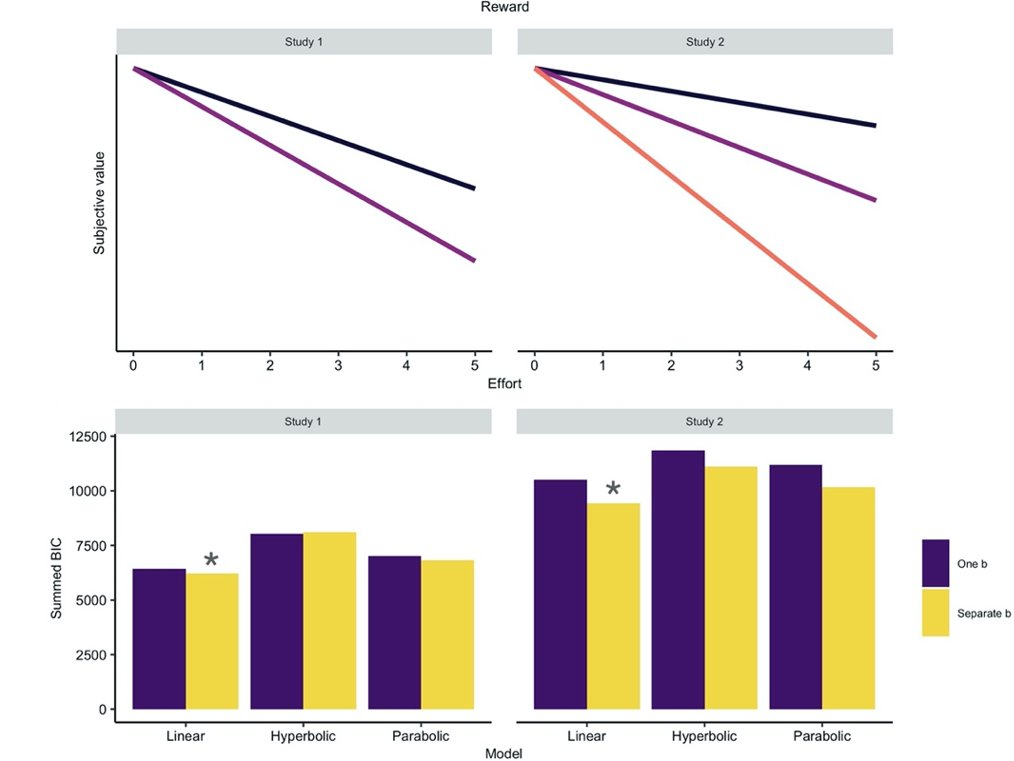New paper just accepted at @SciReports w. @hauselin + @minzlicht!🥳👀Cognitive Effort for Self, Strangers and Charity #scicomm #science #psychology. Building from work by @thepsychologist on physical effort 💪 we examined decisons to invest mental effort for self and others🧠.🧵
Participants repeatedly chose to invest effort or not in exchange for money for themselves, for a charity they selected, or for a stranger, making 75 choices for each. They then added a number (e.g. 3) to 4 digits for a higher reward 💰, or added 0 for a lower baseline reward 🪙. 

We examined their revealed preferences to determine how participants subjectively valued their own cognitive effort when working for themselves, a charity, and a stranger. #econtwitter Like physical effort, people avoided mental effort, and were more willing to work for the self. 

Using #computational modeling, we looked at the shape of cognitive effort discounting. Unlike physical effort, which typically discounts the value of rewards parabolically, we found that discounting due to cognitive effort was best described as linear. 

However, some participants were more willing to invest #effort for charity and strangers. Using #MachineLearning, we found individuals whose self-representations overlapped highly with their representation of charity or stranger were more willing to invest effort on their behalf.
We trained linear SVM's on behavioural data during decisions for self and others, then tested their accuracy at decoding self from other trials. When self-other overlap is low, decoding accuracy is high. When overlap is high, representations are similar, and accuracy is low 🤖🎯.
We expected individuals with high self-other overlap to be more #prosocial. Thus, we should see a negative correlation between decoding accuracy and prosocial effort. Indeed, we found that for both charity and stranger, higher overlap predicted greater effort on their behalf. 

In sum, individuals avoided mental effort at the cost of finanicial reward, especially when earning rewards for others, including a self selected charity. However, people who represented others more similarly to themselves were also more willing to invest effort on their behalf.
It was a pleasure working with @minzlicht and @hauselin on this project🤩, which went through many versions, and improved a lot from reviewer feedback. I certainly learned a lot! You can check out the accepted version of the preprint here #OpenScience: psyarxiv.com/zr3we
• • •
Missing some Tweet in this thread? You can try to
force a refresh




